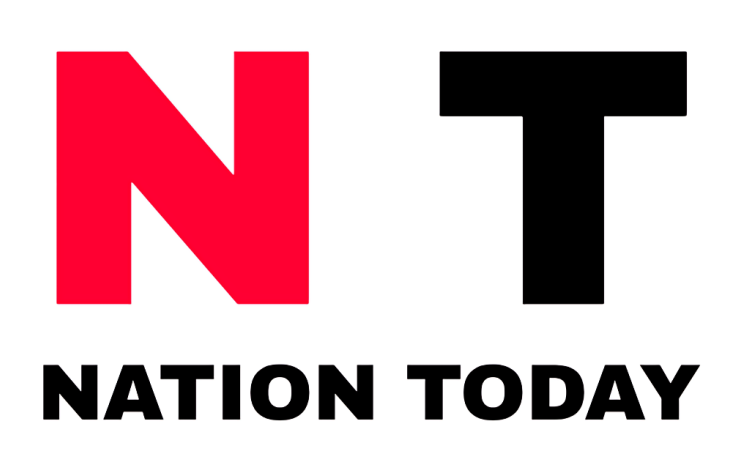In the bustling streets of India’s urban centers, amidst the cacophony of commerce, one name stands out – DMart. Since its inception in 2002, DMart, a chain of hypermarkets owned and operated by Avenue Supermarts Ltd., has revolutionized the retail landscape in India. Founded by the visionary Radhakishan Damani, DMart has emerged as a beacon of success in the retail sector, challenging conventions and setting new benchmarks. In this detailed business case study, we delve deep into the intricacies of DMart’s journey, exploring its foundations, business model, marketing strategies, financial metrics, growth trajectory, and the promising future that lies ahead.
DMart‘s genesis is a testament to the entrepreneurial spirit and astute business acumen of Radhakishan Damani. Unlike many startups founded by young enthusiasts, DMart emerged from the mind of a seasoned investor and businessman. Damani, with his extensive experience in the stock market, recognized untapped potential in the retail sector and embarked on a journey to establish a grocery store chain that would redefine the shopping experience for Indian consumers.

On May 15, 2002, DMart opened its doors to the public, introducing a novel approach to retailing that focused on value and efficiency. Unlike its competitors, DMart chose to own its stores outright, a strategic decision that would prove instrumental in ensuring long-term stability and profitability. While other retailers diversified into various categories, DMart remained steadfast in its commitment to the core food and grocery segment, catering to the essential needs of its customers.
DMart’s success can be attributed to its conservative yet effective approach. By concentrating on a niche market and maintaining a lean operational model, DMart achieved impressive results, boasting a profit-to-sales ratio that outpaced its competitors. Damani’s leadership style, characterized by humility and a keen eye for detail, permeated every aspect of DMart’s operations, fostering a culture of efficiency and excellence.
Financial Overview:
Revenue:
- Revenue Growth: DMart has consistently demonstrated robust revenue growth over the years, driven by its expanding store network and strong customer demand. The revenue from operations for the fiscal year ended March 31, 2021, stood at Rs. 24,143.06 crores, showcasing the company’s ability to generate substantial top-line growth despite market challenges.
Year Revenue from Operations (in crores) 2021 ₹24,143.06 2020 ₹24,870.20 - Profitability: Despite facing headwinds such as increasing competition and economic uncertainties, DMart has maintained impressive profitability ratios. The company’s profit before tax for the fiscal year ended March 31, 2021, amounted to Rs. 1,483.45 crores, underscoring its ability to generate substantial returns for its shareholders.
- EBITDA Margin: Earnings before interest, taxes, depreciation, and amortization (EBITDA) margin is a key financial metric that reflects a company’s operating efficiency. DMart has consistently achieved healthy EBITDA margins, demonstrating its ability to efficiently manage costs and maximize profitability. For the quarter ended March 31, 2021, the company reported an EBITDA of Rs. 617 crores, representing a year-on-year growth of 47.6%.
- Net Profit: Net profit after tax is a crucial indicator of a company’s bottom-line performance. DMart has delivered strong net profit figures, reflecting its ability to generate sustainable returns for its shareholders. For the fiscal year ended March 31, 2021, the company reported a net profit after tax of Rs. 1,099.43 crores, underscoring its robust financial health.
- Expansion Plans: DMart’s financial strength has enabled it to pursue aggressive expansion plans, both organically and through acquisitions. The company has consistently invested in expanding its store network across India, tapping into new markets and driving top-line growth. Additionally, DMart has strategically invested in technology and infrastructure to enhance operational efficiency and customer experience.
Funding and Acquisitions:
- Initial Public Offering (IPO): DMart made its debut on the National Stock Exchange (NSE) with a highly successful IPO posting. The IPO catapulted DMart’s valuation to Rs. 39,988 crores after the close of the stock on March 22, 2017, making it one of the most significant Indian firms on the stock exchange.
Funding Source Amount Raised (in crores) Initial Public Offering ₹39,988 - Market Capitalization: As of November 21, 2019, DMart’s market capitalization was approximately Rs. 114,000 crores, cementing its position as one of the leading players in the Indian retail sector. The company’s impressive market capitalization reflects investor confidence in its business model and growth prospects.
- Acquisitions and Subsidiaries: DMart has strategically acquired and established subsidiaries to diversify its business operations and expand its market presence. Some notable subsidiaries include Avenue E-Commerce Limited and Avenue Food Plaza Private Limited, which complement DMart’s core retail business and contribute to its overall growth strategy.
Acquisition/Subsidiary Purpose/Contribution Avenue E-Commerce Limited Complementary e-commerce platform for DMart’s retail business Avenue Food Plaza Private Limited Expansion into the food plaza segment, diversifying revenue streams - Funding for Expansion: DMart has raised significant capital through various funding sources to fuel its expansion initiatives. The company has leveraged a mix of equity financing, debt financing, and internal accruals to fund its store expansion, technology investments, and other strategic initiatives. This disciplined approach to capital allocation has enabled DMart to maintain a strong financial position and pursue growth opportunities.
Strategic & Organization Structure of DMart:
At the heart of DMart’s success lies its strategic and organizational structure, meticulously crafted to optimize efficiency and maximize value for all stakeholders. DMart’s retail outlets are strategically located in high-traffic areas, catering to the needs of middle-income households. The company operates three formats of stores – Hypermarkets, Express stores, and SuperCenters, each tailored to meet specific customer requirements.
DMart’s customer-centric approach is reflected in its emphasis on delivering value for money. By owning the majority of its stores and strategically managing its supply chain, DMart minimizes costs and passes on the savings to customers in the form of discounts. Vendor relationships play a crucial role in DMart’s supply chain model, with the company prioritizing prompt payments and nurturing long-term partnerships.
The organization structure of DMart is characterized by a flat hierarchy and a culture of empowerment. Employees are valued for their contributions and are provided with ample opportunities for growth and development. DMart’s commitment to nurturing talent and fostering a conducive work environment has earned it a reputation as an employer of choice in the retail industry.
DMart – Business Model & Supply chain Model:
Central to DMart’s success is its robust business model, meticulously designed to capitalize on market opportunities and mitigate risks. Operating on a B2C model, DMart leverages its extensive network of suppliers to offer a wide range of products to consumers at competitive prices. By eliminating middlemen and focusing on direct procurement, DMart minimizes costs and maintains a lean cost structure.
DMart’s supply chain model is characterized by efficiency and agility. The company leverages technology to streamline processes and optimize inventory management. By adopting a just-in-time approach to inventory replenishment, DMart minimizes stockouts and ensures consistent availability of products to customers. Furthermore, DMart’s emphasis on regional goods enables it to cater to diverse consumer preferences and capture niche markets.
Marketing Strategy of DMart:
In contrast to its competitors, DMart adopts a minimalist approach to marketing, relying primarily on word-of-mouth publicity and low-cost promotional activities. The company’s marketing strategy revolves around its unique selling proposition (USP) of offering products at prices below maximum retail price (MRP). By emphasizing value for money and quality, DMart has cultivated a loyal customer base that serves as brand ambassadors.
DMart’s commitment to corporate social responsibility (CSR) is also reflected in its marketing strategy. Through initiatives such as the “Better School, Brighter Futures!” campaign, DMart seeks to make a positive impact on the communities it serves while enhancing brand visibility. Additionally, DMart leverages digital channels such as social media to engage with customers and provide them with relevant information and updates.
Growth of DMart in India:
DMart’s growth story is a testament to its resilience and adaptability in a dynamic market environment. Despite facing headwinds such as slowing consumption and increased competition, DMart has continued to expand its footprint and capture market share. By focusing on customer needs and leveraging its operational strengths, DMart has emerged as a dominant player in the Indian retail sector, poised for further growth in the years to come.
Future of DMart:
Looking ahead, DMart’s future appears promising, buoyed by its strong fundamentals and strategic positioning. While challenges remain, including the evolving consumer landscape and competitive pressures, DMart is well-equipped to navigate these hurdles and capitalize on emerging opportunities. With a focus on innovation, customer-centricity, and operational excellence, DMart is poised to redefine the retail landscape in India and beyond, continuing its legacy of success and sustainability.
DMart’s journey from a modest grocery store chain to a retail powerhouse is a testament to the vision and leadership of its founder, Radhakishan Damani. Through its robust business model, customer-centric approach, and relentless focus on value creation, DMart has redefined the retail experience for millions of consumers across India. As it charts its course for the future, DMart remains committed to its core principles of integrity, innovation, and excellence, setting new benchmarks for the industry and inspiring generations to come.
For more such articles visit NationToday




